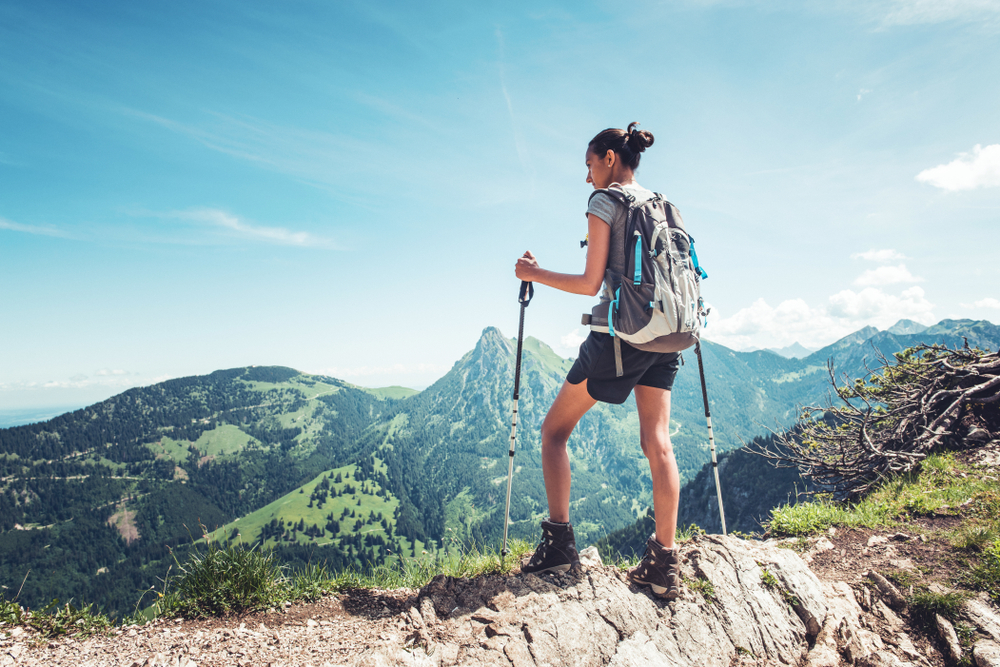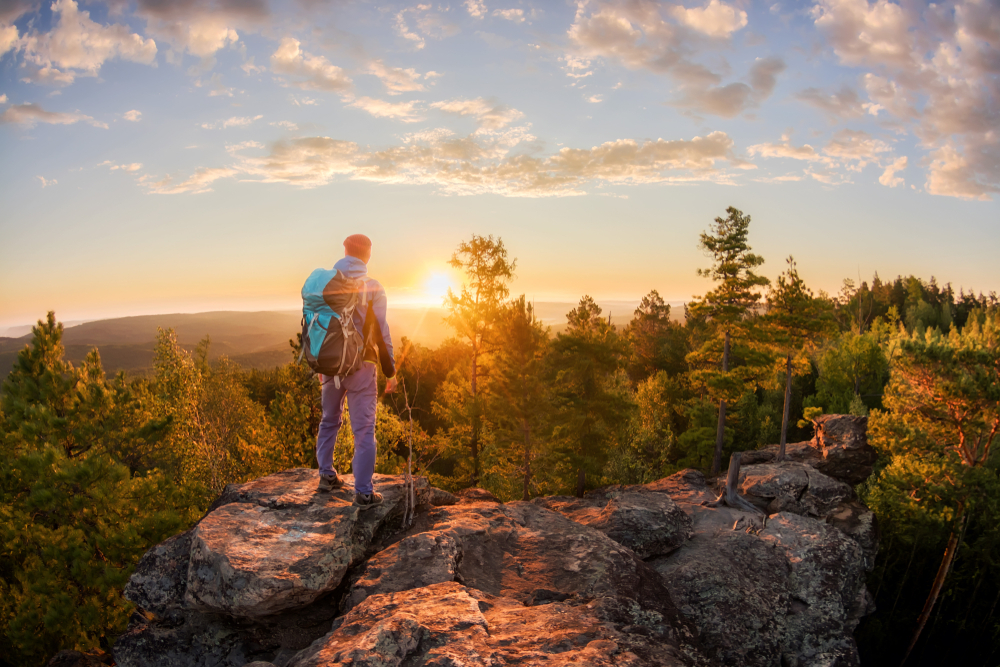Hiking is literally not a walk in the park. It involves walking on trails of various terrains, elevations, and steepness. Given the right weather conditions and preparations, even a couch potato can successfully complete or even enjoy a hike.

The beauty and tranquility that can be offered by Mother Nature is usually a great way to dilute the stress of the daily grind. However, there are certain considerations that you must keep in mind to reduce untoward incidents––and have as much fun as you possibly can.
If you are a novice hiker, you might be at a loss on how to go about it. The list below shares what’s essential for your very first hike––in order of importance.
1. Choose a Trail that is Suited to Your Fitness Level
The best way to increase your chances of surviving any endeavor is to carefully plan ahead. Hence, if you wish to make your first hiking trip memorable in the right way, you must choose a trail that suits your current fitness level.
Given that most hikers post great photos of their adventures, it can be easy to underestimate the trail level if you just rely on “Instagrammable” views. Here are some of the things that you should take note of when you do your trail research:
- Trail difficulty and trail type
- Trail length
- Elevation gain
- Hiker reviews
- Best months to go
Once you start your hike, make sure that you don’t rush into it. Pacing is vital to a successful hike. You are not in a competition—you are here to enjoy what’s around yo
2. Prepare an Appropriate Hiking Pack
The contents of your hiking pack will depend on the weather and the season you’re currently in. Outdoorcommand has a number of buyer’s guides to help you choose which gears are best suited for your upcoming adventure. Here are the bare essentials that must you must bring with you in any hike:
- Daypack: 20L to 35L capacity should be enough, though you can go for bigger ones if you eventually plan to level up.
- Water Bottle or Hydration Pack: The general rule is 500mL of water for every hour of hiking.
- Trail Food: Go for food items that don’t need cooking, such as dried fruits, energy bars, biscuits, and nuts.
- Headlamp or Flashlight: You may not plan on night hiking, but you never know when it would come handy.
- Multi-tool or Knife: These will always prove to be useful at one point or another.
- Navigation Device: This can be a compass, a map, or a GPS device. The trail may be well-labeled, but it’s better to be prepared.
- First Aid Kit: Include antihistamines, antiseptics, bandages, pain killers, and tweezers, just to name a few.
- Extra Clothes: Weather conditions can be unpredictable, so you’re better off bringing some extra clothes.
3. Wear the Right Clothes
It might be tempting to choose stylish clothes just to look good on your photos, but you will be sorry if you wear the wrong clothes and footwear to your hike. For clothes, go for moisture-wicking fabrics and wool (for cold weather hikes) as these materials dry quickly.

You should also bring sun protection accessories such as hats and sunglasses if you are hiking in the heat. Make sure that you do your research on the best hiking clothes for men and women so that you’re well-protected when hiking day comes.
4. Fuel and Hydrate Adequately
The importance of hydrating before, during, and after the hike cannot be stressed enough. Additionally, snacks can also keep you going when you’re already feeling weak. Make sure that you also pack a “victory snack,” or the snack that you will eat at the end of the hike. This will serve as your reward for a job well done.
5. Follow Outdoor Etiquette
“Leave No Trace” is probably the most widely known outdoor etiquette in existence. It just simply means that you should clean up after yourself, and leave the trails exactly as you found it––or even better than you found it, if you chanced upon it in bad condition.
Be considerate of other people and the wildlife that live in the area. As the saying goes, “Take nothing but pictures, leave nothing but footprints.”
Conclusion
Even if it might take a lot of physical effort, hiking can be a tremendously rewarding experience. The key to surviving hikes is to ensure that you know exactly what you are getting yourself into. If you are fully prepared for the challenges of the trails, you’d surely enjoy your first hiking trip.
